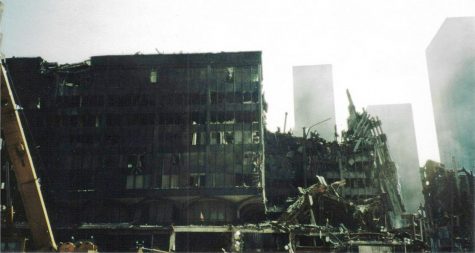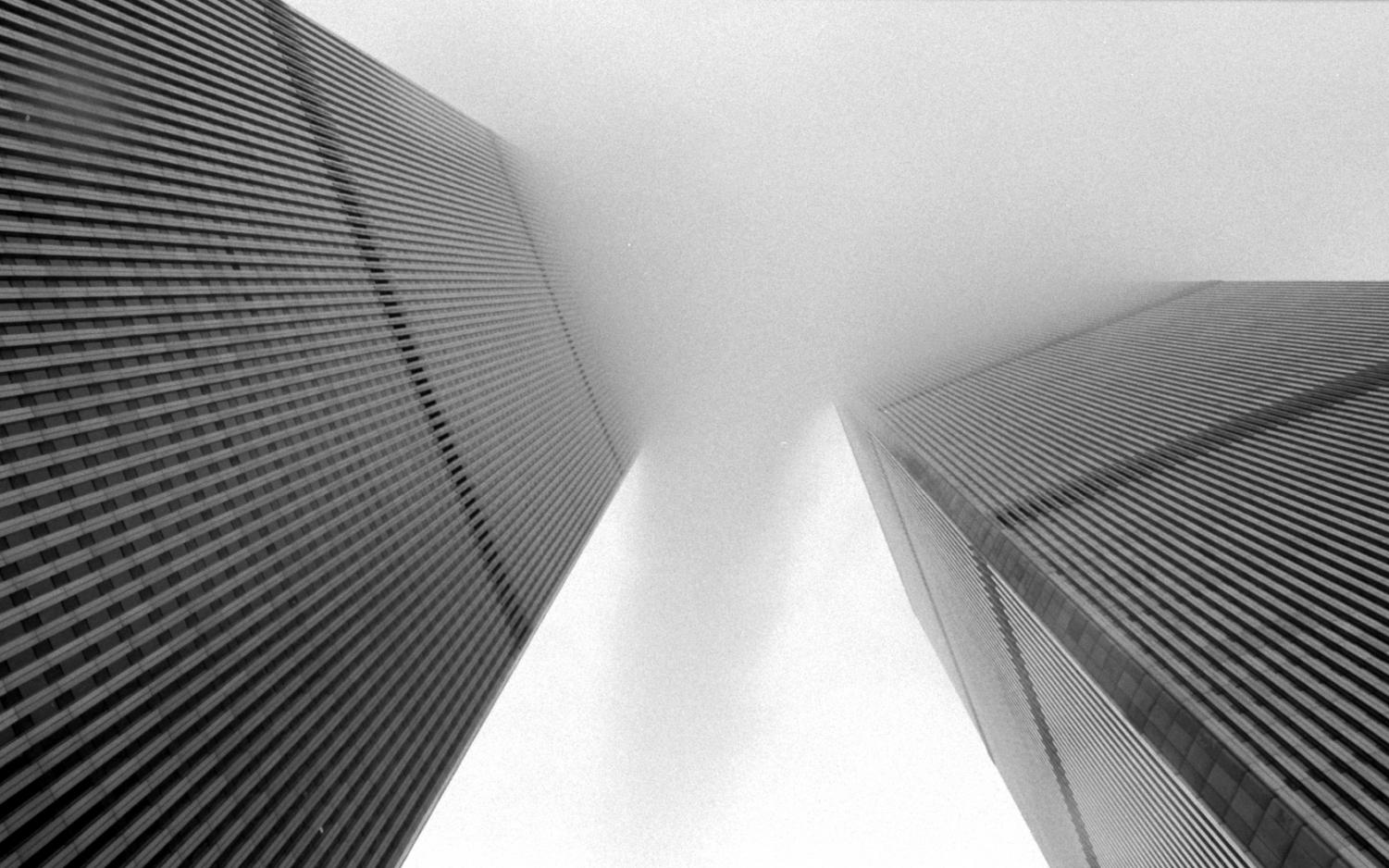How 9/11 Shook the Newsroom
September 11, 2019
8:46 a.m.
On the Scene
Shaheen Pasha looked out at her view of Manhattan as she chatted on the phone with a man at the World Trade Center about the stock market numbers for the day.
As she worked on her report, she glanced out her window at the Dow Jones Newswire in New Jersey where she saw the first devastating explosion hit the Twin Towers, the workplace of her husband and friends. While balancing attempts to contact her spouse and reporting headlines, the second plane hit.
Pasha’s experiences with the terror attacks remained personal. When the first tower collapsed, the shockwave rattled her building and forced her to evacuate the office. She had not only grown up and gone to college in Manhattan but had taken classes in the very buildings that fell.
In a newsroom full of American journalists, Pasha’s colleagues worked together to cover the story and comfort each other.
“That triggered such an international response. The rest of the world had experienced these kinds of attacks on a regular basis. It was the first real understanding of what terrorism means for us,” Pasha said.
9:03 a.m.
Overseas
Razvan Sibii was newly out of college and working in a local Romanian newsroom when his eyes peeled off from his work of the day to the nearby television screen. He and his colleagues watched as hijacked airplanes hit the World Trade Center buildings, two of four attacks that would end up killing nearly 3,000 people.
Sibii said while he was far away from the States, he knew the tragedy would have major implications not only nationally, but everywhere else across the world. He was right. 18 years later, Sibii has written many stories that have correlated to the tragedy that day, including finding sources affected by Sept. 11 for a Romanian newspaper after Osama Bin Laden was killed in 2011. He also noted last week’s news in which both Romanian and United States soldiers have died in Afghanistan Suicide attacks, a prominent reason President Trump cited as he called off scheduled peace talks with the Taliban.
“9/11 still has a lot of repercussions on the world every day,” he said.
9:37 a.m.
The Waiting Game
Steve Fox, the national editor of the Washington Post website, arrived on the ninth floor of the tallest building in Arlington, Virginia to find his usually organized newsroom transformed into a swarm of chaos.
On his morning drive to work, Fox heard the radio report that would change history: a commuter plane had plummeted into the World Trade Center. Fox’s deputy editor was clueless about events until he watched in horror as another plane hit the towers on television, just as Fox parked his car.
As a local New Yorker himself, Fox checked on his family in both Brooklyn and Queens and his now ex-wife before personal matters drifted to the edge of his thoughts. Erroneous reports of car bombs at the National Mall rushed in for Fox and his colleagues to decipher, only adding more to the existing confusion.
As the third plane crashed, Fox and his team of reporters walked out to their patio to the sight of smoke rising from the Pentagon. It was then that Fox and his team realized that this was a terrorist attack.
“Pre 9/11 was a different time and you try to teach that, and try to get people to think about moving back to that time period rather than continue on a war footing,” Fox said.
10:03 a.m.
Close to home
B.J. Roche was writing a weekly column for The Boston Globe when she was redirected by her editor to track down information on the four or five people from Western Massachusetts that had died during the Sept. 11 attacks.
She found out one of the people was a UMass employee named Christoffer M. Carstanjen who worked in the Office of Information Technology (OIT) Department and so she called someone she knew from the department to find out more about him.
She was told he was a great guy and rode a motorcycle. She was told he took a last-minute, bargain flight to San Francisco for a motorcycle trip he did with friends every year. She was also told he enjoyed scrounging for computer parts.
At that moment, she remembered a conversation with a man from the UMass OIT Department a few days prior. He poked his head into her office in Bartlett to ask for spare computer parts. She told him that he was like her husband because he also was fond of putting together old computer scraps. She collected some pieces for him, and shared a funny exchange before the stranger went on his way.
“I’m sort of freaking out now just thinking about it,” she said. “I’m on the phone talking and I just realize that I just met that guy, you know? Then, he was gone.”
There is now a memorial for Carstanjen in Lederle’s OIT department, with a picture of him and his motorcycle in Marblehead Harbor. It was an image Roche was surprised to see, as it was the beach she played in as a kid.

For those who would like to know past the basics of what happened 18 years ago today, we have attached additional educational resources.
September 11 Fast Facts by CNN
French Brothers and Filmmakers recall their footage of Sept. 11 attacks
